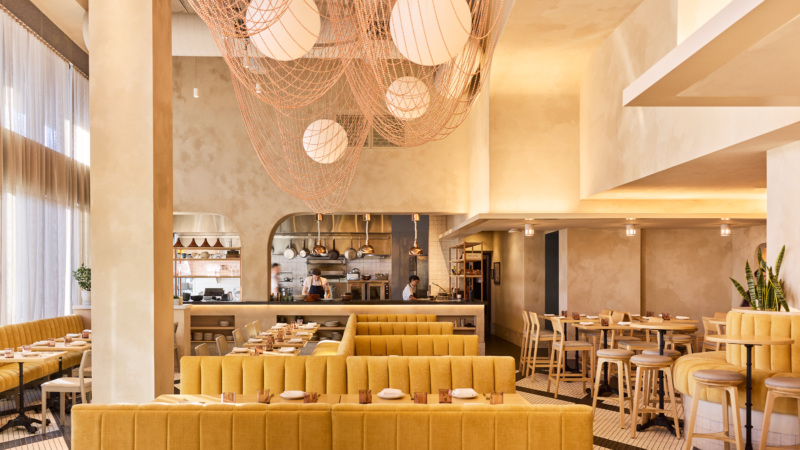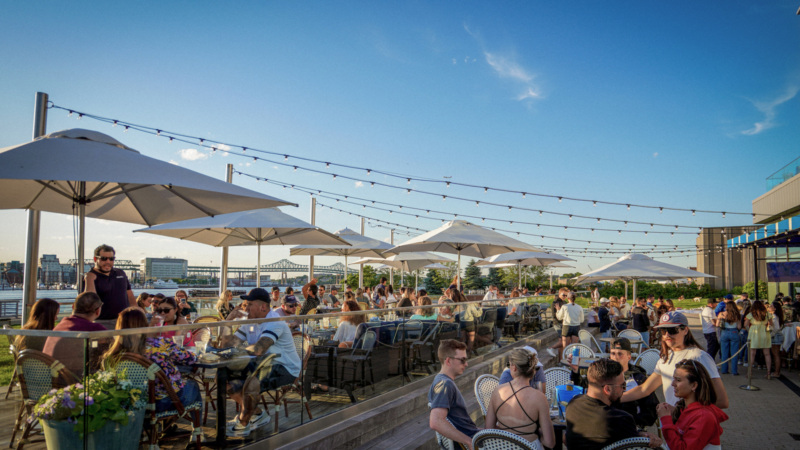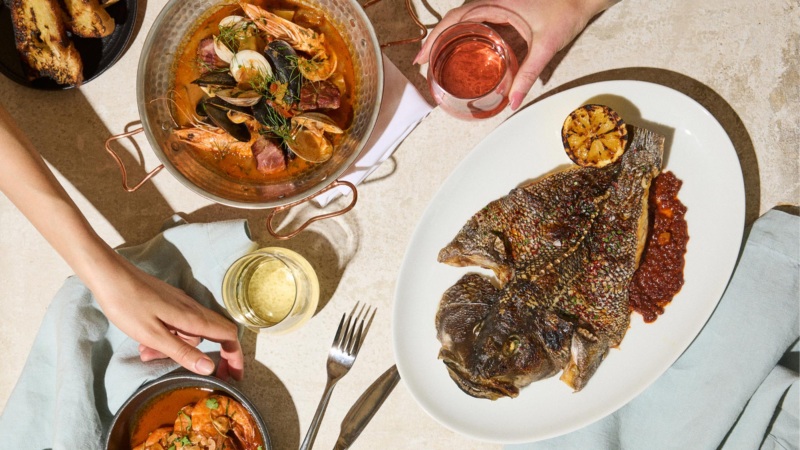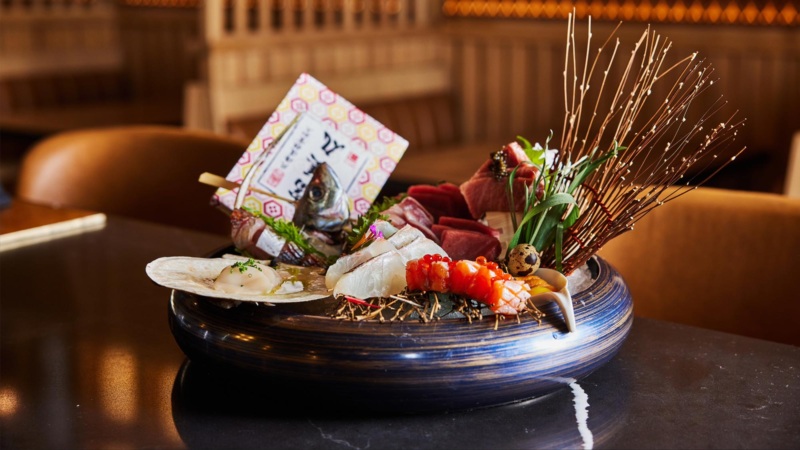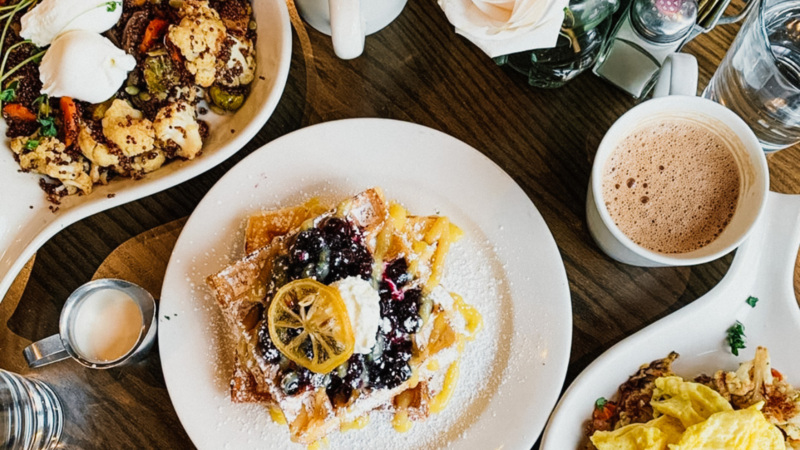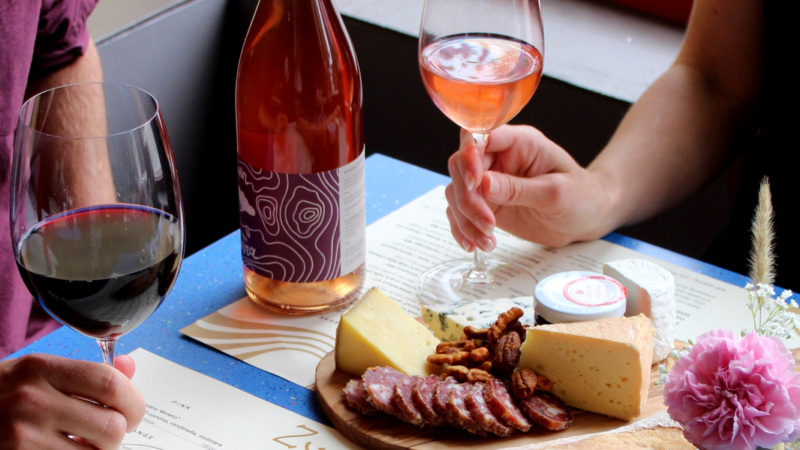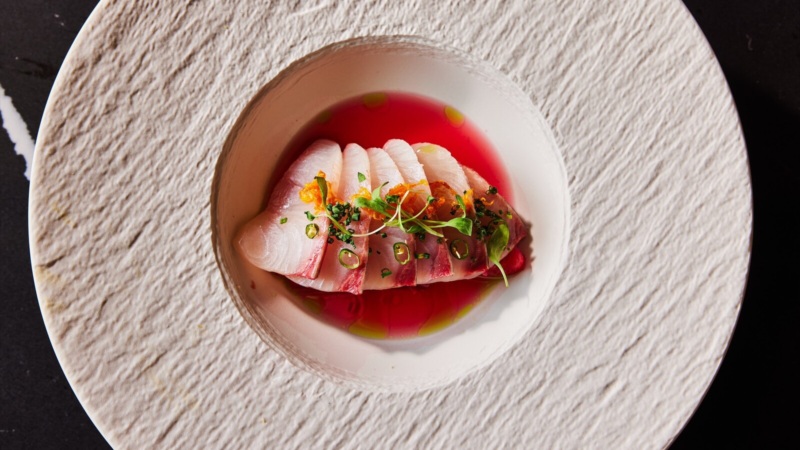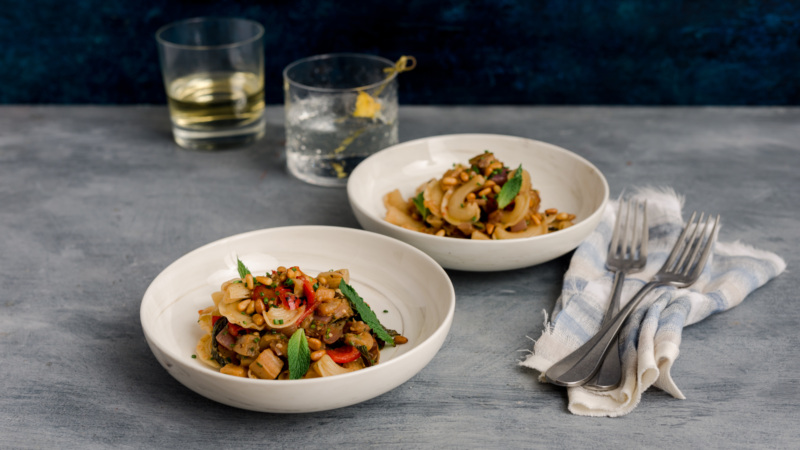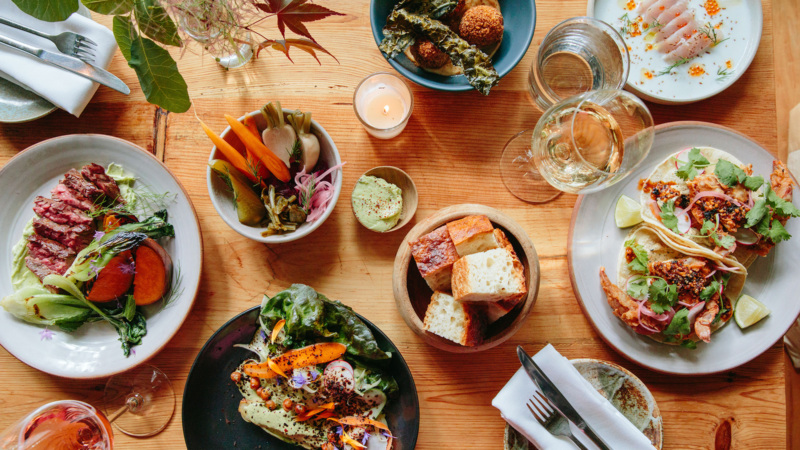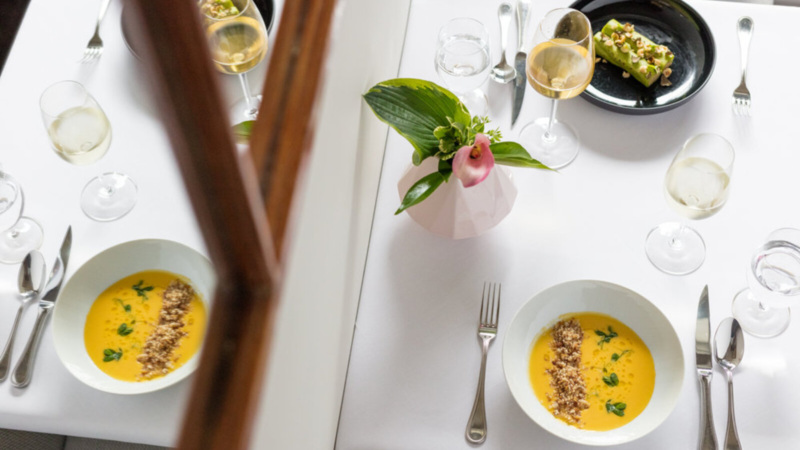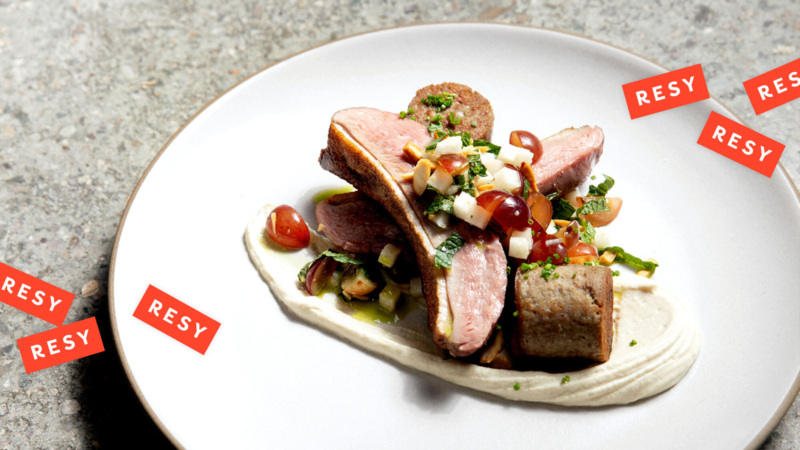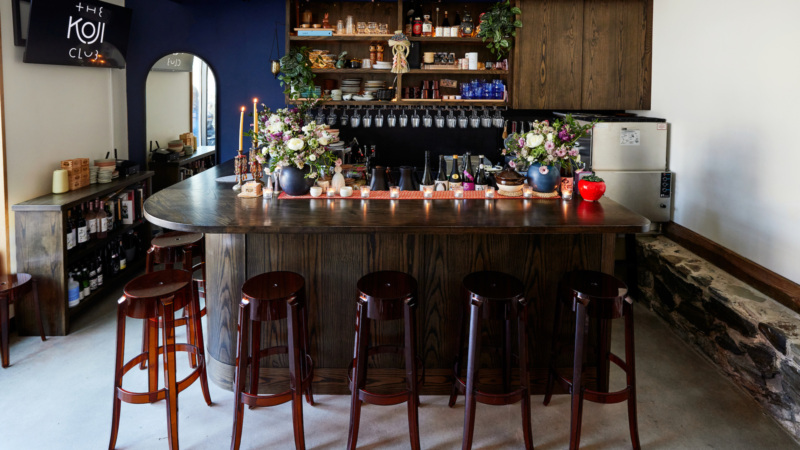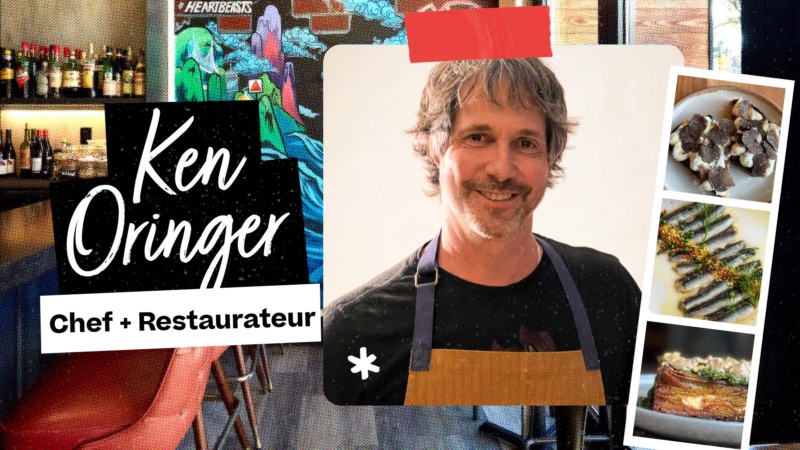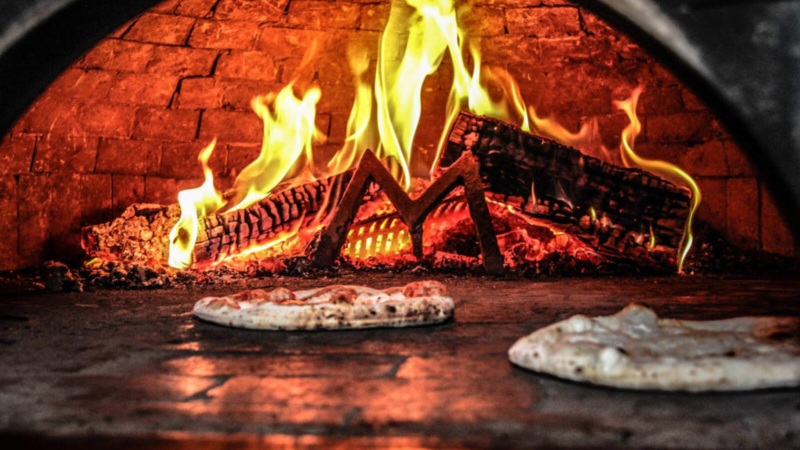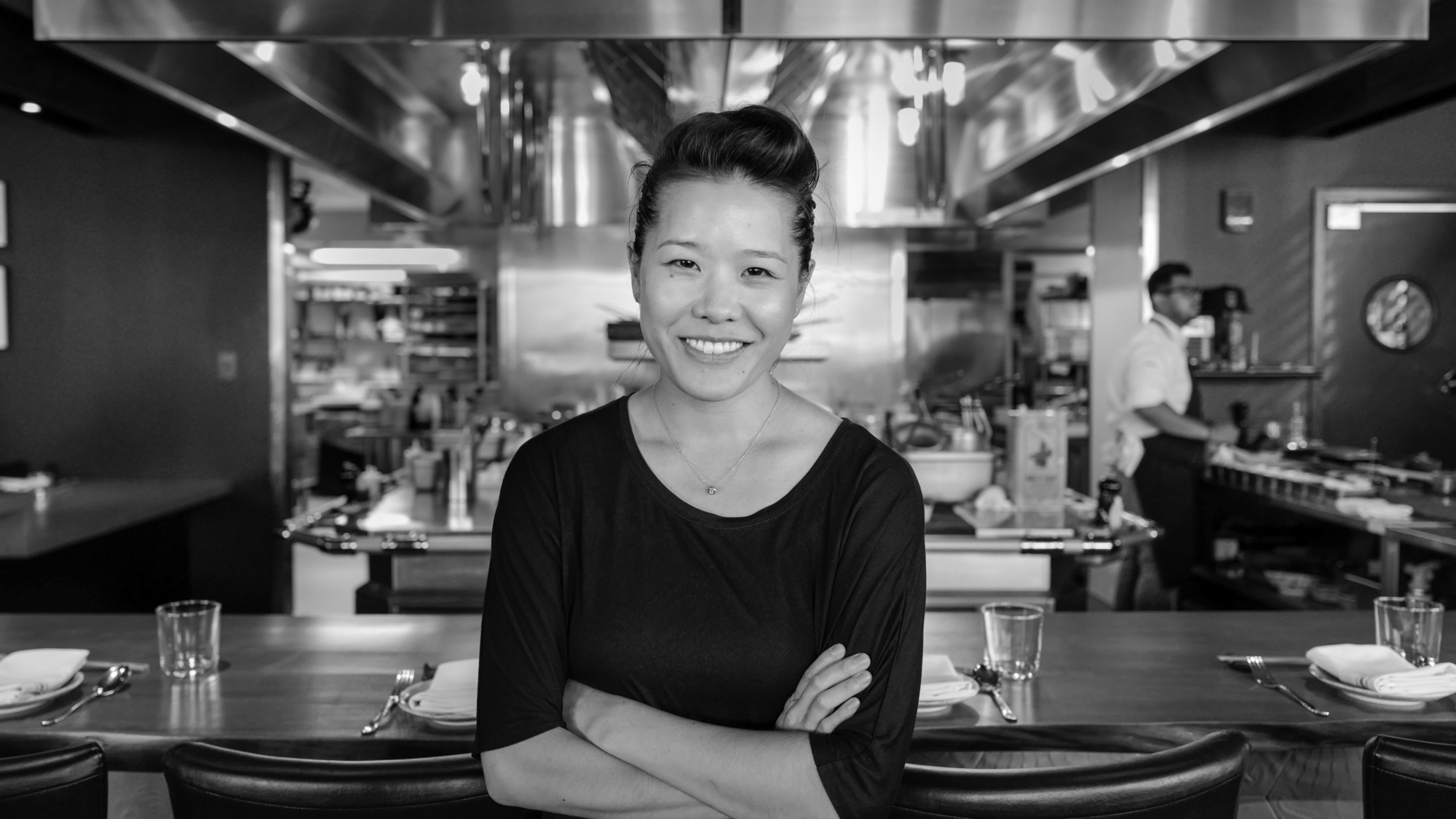
Tracy Chang Launches Roundtables to Spark Community Conversations
Imagine a restaurant full of dinner guests, most of whom have arrived as strangers, but are now chatting and mingling as if they’ve known each for years. That’s the scene you’ll encounter when you attend a Roundtable at Pagu, Tracy Chang’s Spanish-Japanese tapas restaurant in Central Square, Cambridge. Together with a dedicated team of volunteers, Chang has launched a food-and-drink event series at the restaurant to foster community conversations among chefs, activists, and diners about some of the most challenging issues of the day.
The series launched in April with a gathering focused on seafood sustainability. In May, guests gathered for a sold-out event highlighting the experiences of Asian American Pacific Islanders, with food by Chang herself, as well as KT Cheung (formerly of Cloud & Spirits), Jason Doo (Wusong Road), Laurence Louie (Rubato), Alex Nystedt (Hot Chix), and Ted Woo (Mimi’s Chuka Diner). The stories that punctuated the night’s proceedings were lively, surprising, and often poignant.
The next Roundtable event will take place on July 23, and will explore the topic of food insecurity with Everybody Gotta Eat. Tickets (available here) are $35, and all ticket sales benefit the Roundtable Culinary Pilot Program.
We sat down with Chang to hear more about her mission, and how she’s centering dining and dialogue. This interview has been lightly edited for clarity.
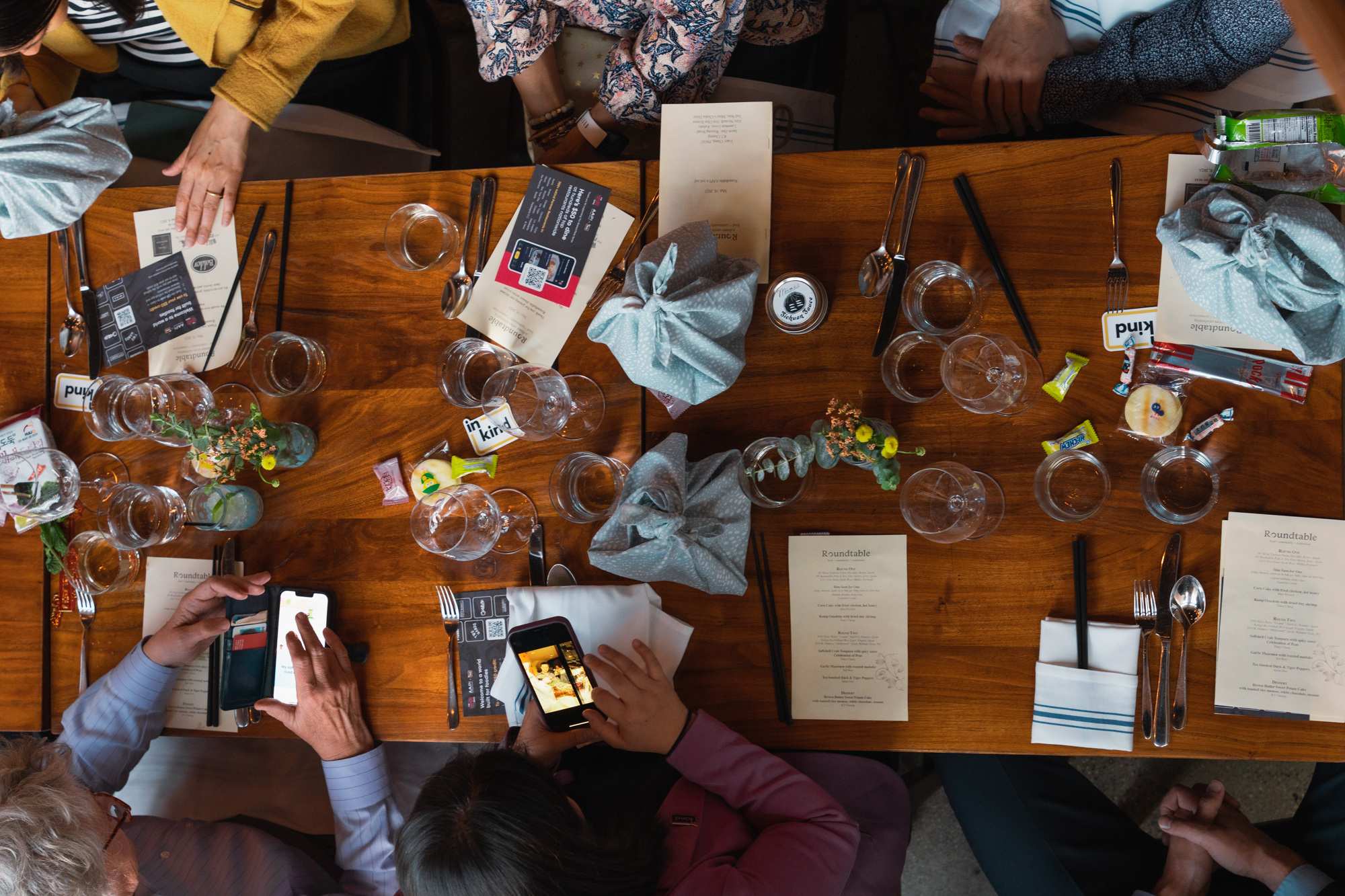
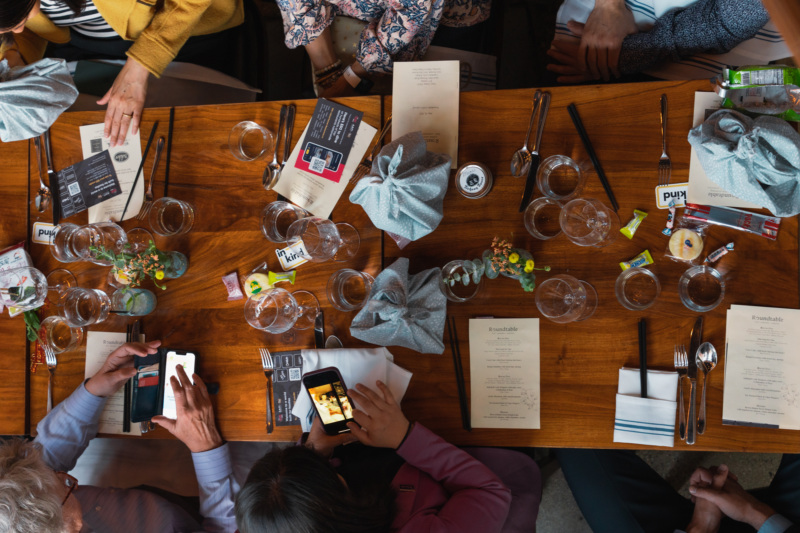
What motivated you to launch the Roundtable series?
Tracy Chang: Long before I had a restaurant, this idea was already simmering. I was doing Guchi’s Midnight Ramen [as a pop-up] before I opened the restaurant, and a lot of dinner parties. I might invite a few friends, and my other friend might invite a few friends. People were coming from all backgrounds and experiences, bringing interesting ideas, gadgets they might be developing, an instrument, or some art — so the dinner party was just that much more engaging and interesting.
So fast-forward to opening and operating the restaurant: I always wanted Pagu to be a gathering place for people to feel a sense of comfort — to see familiar faces from the neighborhood, and feel comfortable meeting strangers. And then we were hit with Covid. That was when we realized that the restaurant had this power and potential to be a gathering place. All of these people from the community really came out to support us with the nonprofit initiatives we started around community feeding.
Describe the nonprofit initiatives you started during Covid, and how proceeds from a Roundtable will benefit one of those efforts.
So we started two 100% volunteer-run organizations: Off Their Plate and Project Restore Us. We scaled Off Their Plate nationwide, raising over $13 million [to feed healthcare workers during the pandemic] in 12 cities. Project Restore Us has gone through multiple evolutions. During Covid, when restaurants were closed, restaurant workers packed up groceries, and volunteer drivers would take the groceries door to door to food-insecure families, using distribution lists from various community organizations. Since restaurants have reopened, the model has evolved to include pop-up farmers markets in collaboration with [entities including] Boston Housing Authority. The AAPI Roundtable raised over $5,000 that will go to Project Restore Us, to its current initiative of providing staple dry goods like rice and beans to food-insecure families.
I always wanted Pagu to be a gathering place for people to feel a sense of comfort — to see familiar faces from the neighborhood, and feel comfortable meeting strangers.— Tracy Chang
Let’s talk about the AAPI Roundtable, held at Pagu last month. How did you choose that focus for the event?
May was Asian American Pacific Islander Heritage Month, so it was a no-brainer to do it during that time. And, the statistic [that less than 0.2 percent of philanthropic funds go toward AAPI communities] was eye-opening. The whole world of nonprofits and philanthropy is new to me. Some nonprofits are large organizations with C-level executives making six-figure salaries — not as connected to on-the-ground initiatives. Our goal is not to be that. With Project Restore Us, we’re keeping it local and grassroots, measuring the impact, and making sure the large majority of funds goes directly to food for the people.
What else motivated you to do an AAPI-focused Roundtable?
During Covid, there were intense, tragic moments around social justice: Black Lives Matter, George Floyd, and a lot of Asian hate. I felt that we never got a chance to talk about that beyond our social channels and smaller groups, because of the safety precautions we were taking during Covid. So we thought, “Let’s try to imagine what that would look like now, in May 2023.” So we designed an evening where AAPI organizations that we partnered with — like VietAid, Chinese Progressive Association, Asian American Resource Workshop, and Asian Community Fund at The Boston Foundation — got a platform to share their experiences. Also, conversations were taking place at the tables, as well as in the kitchen among the chefs. We wanted to create a sense of comfort for everyone to share about what they are trying to navigate, to have conversations with people of similar upbringing, or to share some kind of similar trauma that they’re trying to figure out.
It’s clear that conversations — over excellent food and drink — are central to these events.
The conversations are really important. People feel comfortable when the food is good, the drink is good, and when people feel they can say what they feel, to say what they think. There’s a particular recipe to it. There’s intentionality to it. Part of that is seating people with others they might be interested in. People come, and when they leave, they feel like their cup is more than half-full. They’ve made valuable connections, and hopefully continue those conversations.
Throughout the evening, the chefs seemed at ease talking about experiences that inspired their dishes. How did you cultivate that?
We recognize that not all chefs like to be in front of cameras or the microphone in front of a big audience, but because of the warm-up behind the scenes with other chefs, they develop that comfort, so once it’s their turn to talk, it feels less scary. They’ve already done their passed appetizers, talked with guests, and they’re like, “Oh wait, people showed up for us, for me, this isn’t meant to be scary.”
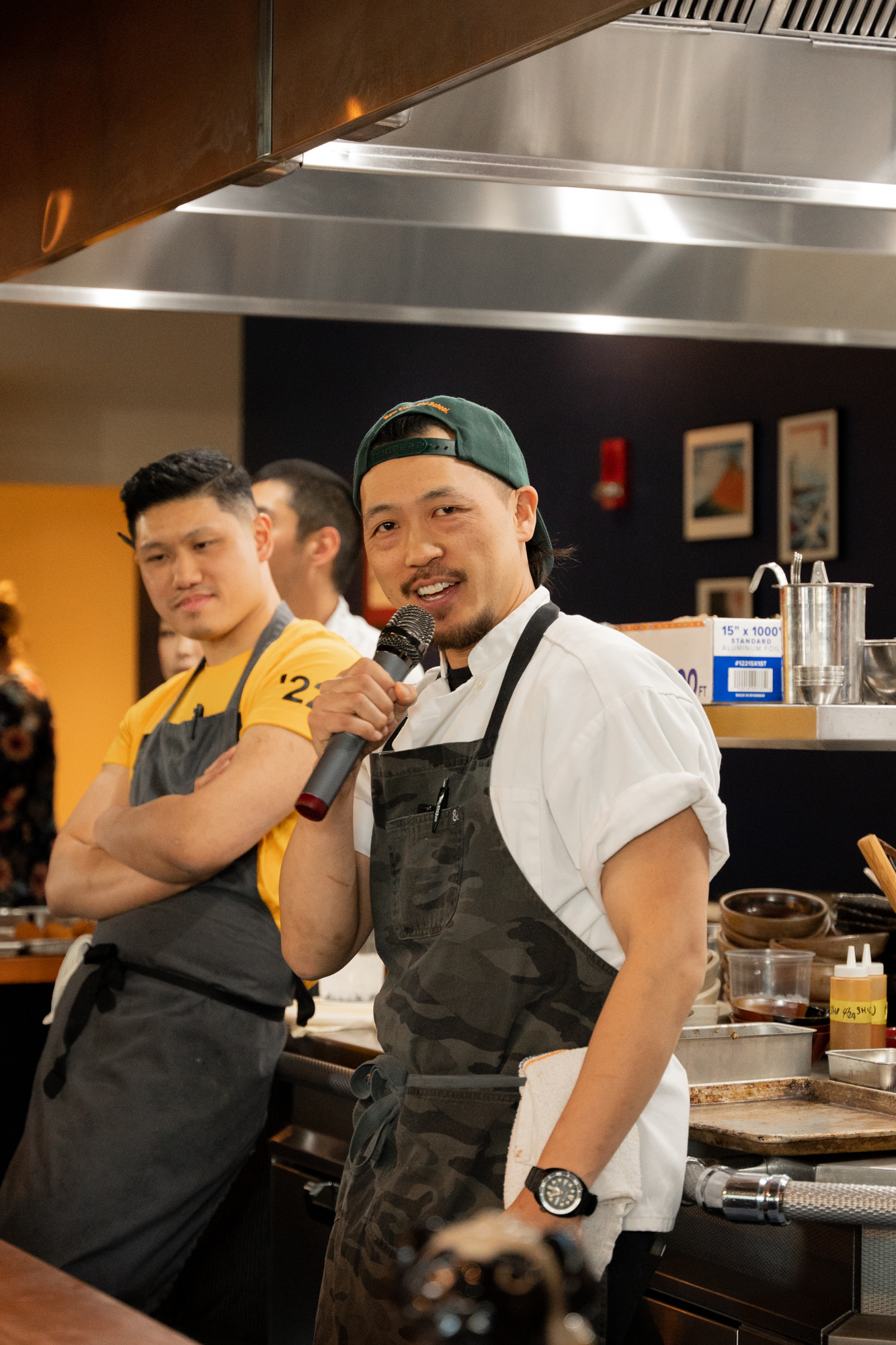
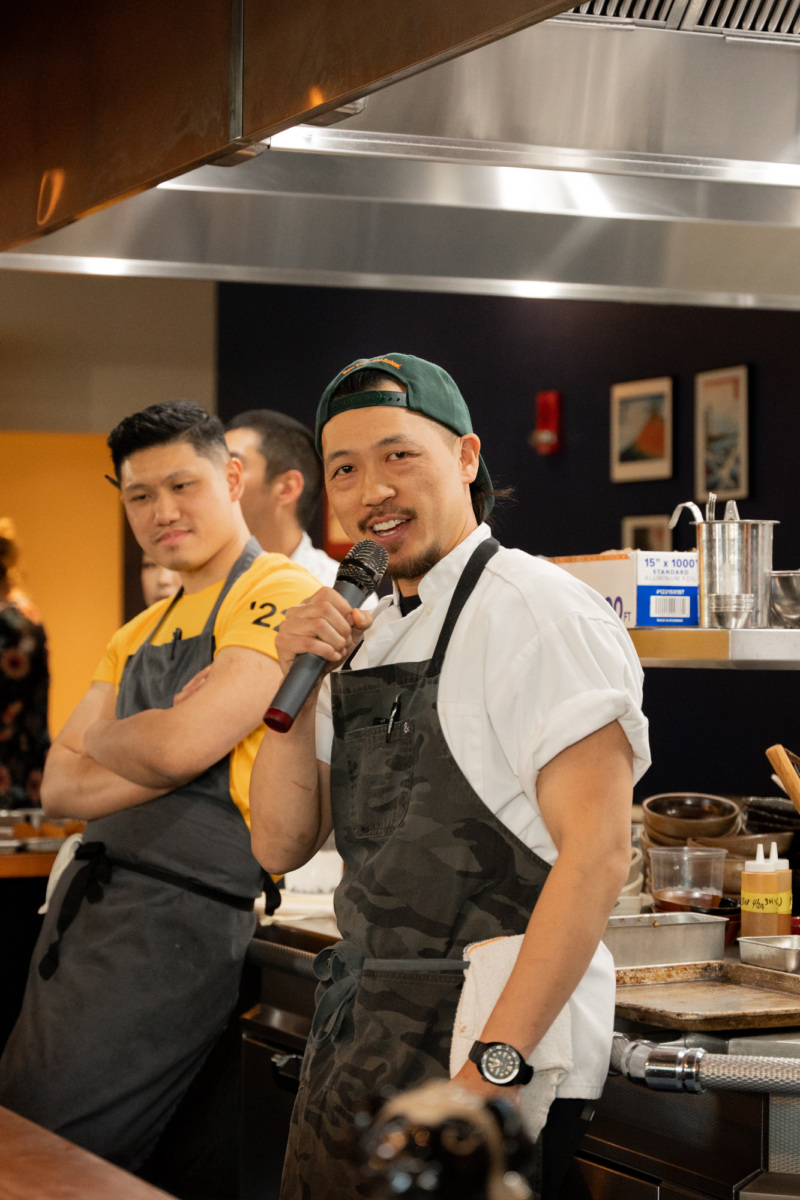
You’ve known some of the chefs for years, right? How did you connect with the others?
Jason, Alex, and I go back to over 13 years ago when they were working at Barbara Lynch group and I was working at O Ya. We talked at those pop-ups about eventually being owners one day, and what that would look like. Alex had hosted me at Sportello when I was popping up; and then during Covid, as well as before, I had hosted his Hot Chix pop-up at Pagu every week for several years. These guys have become like my siblings in the industry. They are just great people — we all want to help each other out. So while I didn’t know Ted as well as the other two, I knew he was a friend of Alex. Laurence and KT too, it was a friend-of-friend thing. I want them to be successful. I want to make sure to connect them with my good friends who’ve helped me out.
When chefs support other chefs, how does that impact the broader restaurant industry?
That kind of thinking about solidarity — and that kind of practice of leaning on people — is powerful. Especially during Covid — with all these recent mass shootings and elders getting beat up, all of this negative news about Asian people being targeted — it’s even more important now to figure out. How do Asian people break down these ethnocentric stereotypes? There is no ‘model minority.’
Searching for solidarity — who is out there to compete, versus who is out there to collaborate — is sometimes difficult to navigate. But when you know that there’s one good person on your side, hopefully their connections to other really great people can come together, and pave a better path forward.
Solidarity and allyship are obviously important to you, so it was great to see such a diverse crowd at the event.
You didn’t have to be Asian to attend this event. The conversation was not limited to people of AAPI descent. It’s really wonderful that there were people of other cultures in the room. That allyship is really important. Hopefully, for these events, people don’t feel they have to be a certain color, or of a certain background, or of a certain income status to come to these events — which is why we intentionally make tickets available for high school and college students, for example, through sponsorships.
So tell me about the next Roundtable, coming in July. Who is involved and what is the focus?
The event we have coming up on Sunday, July 23, will be a daytime event at Pagu, 12 p.m. to 4 p.m., focused on barbecue and the Haitian experience.
It will be with Emmanuel Mervil, who has an organization called Everybody Gotta Eat. Manny grew up in Cambridge, and has done work in food security among Haitian Americans in the Cambridge area, as well as sending dry goods back to Haiti. He’s known for throwing giant block parties. July’s event at Pagu will be bigger than the Roundtables we’ve done so far, which numbered from 80 to a hundred. At the July event, we’re going to have around 400 people.
Having come off a really strong AAPI event, I’m curious: How do we build an event at a restaurant that is Spanish-Japanese, where the majority of people working there are primarily Latinx? How do you talk about the Haitian American experience, bringing together a melting pot of people in the Cambridge area? That’s something we’re trying to design toward.
What you’re doing feels very intentional. How are you trying to build these models of connection?
The goal of these Roundtables is to test out various models so we can build standard operating procedures and systems to replicate in other spaces — in restaurants and in non-restaurants. People have similar thinking when it comes to wanting to do good, to help others by bringing people together over food and drink. We’re excited to have friends in Portland, Maine; Portsmouth, New Hampshire; and Washington, D.C. who want to do that as well. We have met these incredible people who are local and regional to make it possible. So it’s our social responsibility to create frameworks that can be scaled. That is the bigger picture and bigger goal here.
Ellen Bhang is a Boston-based food and wine writer whose work appears regularly in The Boston Globe and The Food Lens. Follow her on Instagram. Follow Resy, too.


